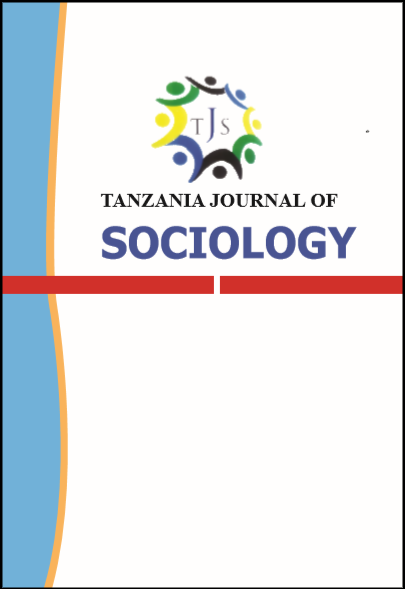Main Article Content
Critiquing Experts’ Struggles to Amplify the Concept of ‘Nutrition’ among Under-five Children in Southern Coastal Tanzania
Abstract
This article analyses experts’ views of the underlying causes of (under)nutrition issues among
children in southern coastal Tanzania by paying attention to the sectors of agriculture, wildlife
and fisheries. This critique is in the light of Harvey’s (2003) concept of ‘accumulation by
dispossession’ and Foucault’s (1976) concept of ‘biopolitics’. While accumulation by
dispossession describes transformations that ensure the coexistence of commodity and non-
commodity relations in southern coastal Tanzania, biopolitics highlights experts’ techniques
with which both, the said relations and experts’ views of nutrition, are legitimized and
reproduced. Using critical ethnography, we conducted in-depth interviews (IDIs) with experts
at various levels and reviewed documents to highlight the techniques with which experts
represent and legitimize their understanding of nutrition. Findings show that, despite struggles
to amplify it, the experts’ view of nutrition remains exclusionist, representing coastal
communities as isolated and restrictive to rational nutrition thoughts, actions and practices. In
particular, the experts’ understanding of nutrition misses critical aspects, namely features of
coastal communities such as production and consumption patterns as well as their views of
nutrition for children. Accordingly, this paper recommends that experts should refashion their
conceptual tools to enable them to capture the social organization, consequent social
conditions of the coastal communities, and their experiences. All these play a critical role in
shaping their understanding of ‘nutrition’ among children in southern coastal Tanzania.







